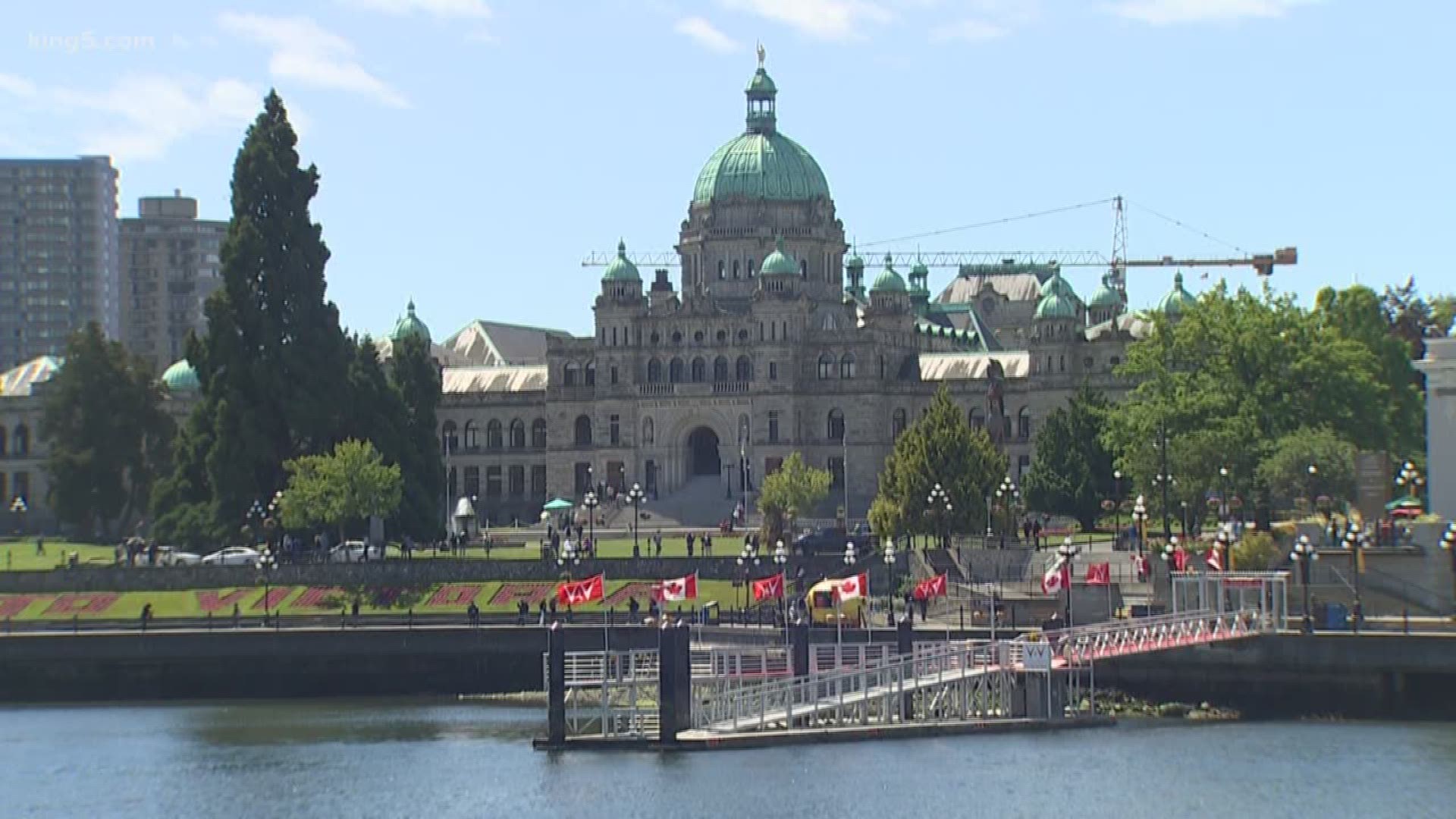VICTORIA, BC — Victoria, British Columbia will soon start treating its sewage before discharging it into waters the U.S. and Canada share.
Washington lawmakers and environmental groups for decades have urged Victoria to clean up their act. It is the last major coastal community in North America to discharge raw sewage from its shoreline, according to the CRD, their regional government.
Currently, when hundreds of thousands of Canadians flush their toilets CRD screens out anything larger than six millimeters to remove paper, plastics, and other debris.
The rest, human waste, is pumped into waters that touch the San Juan Islands, the Olympic Peninsula, and Puget Sound.
But that's about to change.
When it's finished next year, a sprawling project at the entrance to Victoria Harbor will be a state-of-the-art wastewater treatment plant, which will filter out particles you can only see with a microscope.
An extra level of treatment will scrub out microplastics and other contaminants before wastewater is discharged offshore, CRD said.
Project managers said it will not only meet Canadian standards, it'll exceed them.
“This wastewater treatment plant is an example of doing the right thing,” said Colin Plant, CRD chair.
But for a long time, many people felt Victoria wasn't doing the right thing; that they just didn't care about the environment or didn't want to spend the money on upgrading their waste systems.
Washington lawmakers have been complaining about the sewage issue for decades. Some even called for travel boycotts.
“We hope that residents who were maybe staying away because of the sewage treatment issue will come back and give us another chance,” Plant said.
But what took so long?
Plant said they couldn't find a treatment plant site that everyone could agree on and there wasn't wide enough support among elected leaders.
They kept putting it off until the Canadian government approved stricter wastewater standards and set a 2020 deadline for cities to comply.
Washington’s griping may have helped, Plant said.
“I have no doubt that the expressions of concerns that came from the leadership of Washington State and from the residents of Washington State played a factor in the decisions of the provincial and federal governments,” Plant said.
The new wastewater treatment facility, which costs just under $600 million U.S., should start running next summer and should be fully operational by the end of 2020.

